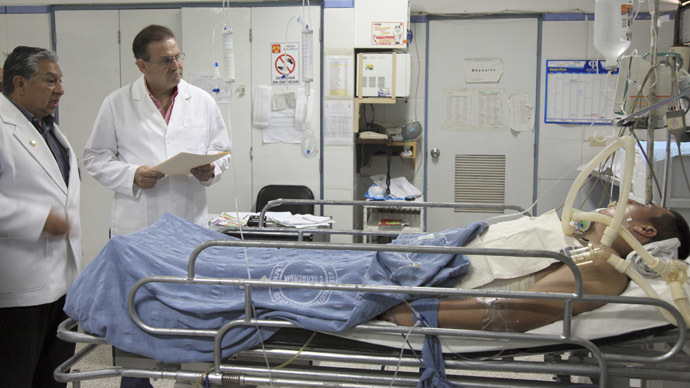Canada top court ruling allows doctor-assisted suicide

The Supreme Court of Canada has overturned a previous ban from 1993 and has unanimously decided to grant patients with severe and incurable medical conditions the right to die.
The court ruled on Friday that patients who are suffering an intolerable and incurable medical condition – either physical or psychological – will be allowed to end their own lives with the help of a physician, and the illness need not be terminal.
The decision is to come into effect in 12 months so that lawmakers can write the law in detail and with careful consideration.
The current law in Canada states that it is illegal to aid or abet a suicide and carries a hefty 14 years in prison.
“We do not agree that the existential formulation of the right to life requires an absolute prohibition on assistance in dying, or that individuals cannot ‘waive’ their right to life,” the court said.
The government has said it will look at the Supreme Court’s decision.
“This is a sensitive issue for many Canadians, with deeply held beliefs on both sides. We will study the decision and ensure all perspectives on this difficult issue are heard,” Justice Minister Peter MacKay said in a statement.
Canada last considered the issue in 1993, and the court majority against overturning the law was slim at 5-4.
Friday’s decision related to the cases of two women both of whom have now died, Gloria Taylor and Kay Carter.
Taylor who suffered from Amyotrophic Lateral Sclerosis (ALS), joined the right to die lawsuit in 2011 and died of her illness in 2012.
READ MORE: Assisted suicide campaigners tackle ‘misconceptions’ in new video
Carter traveled to Switzerland with her family to end her life in 2010. In Switzerland, a handful of other European countries and a few US states doctor-assisted suicide is legal. Her family continued to fight her case after her death.
The case was a victory for them, and the court paid their full legal costs in what it said was a public interest case against the federal government.
Carter’s daughter Lee Carter called the decision “a huge victory for Canadians and a legacy for Kay.”
Organizations representing the disabled and religious groups had opposed the ruling, arguing that people would be vulnerable to being killed.
But other members of parliament such as Steve Fletcher who is himself a quadriplegic have argued that people must have the choice and that the law should be carefully worded.
“There does need to be some criminal code provision, I think, to prevent abuse. I don't want people, because they have a bad hair day, to get their car mechanic to take them down. We want to make sure that we move forward quickly, but thoughtfully, and the Supreme Court has really given us a clear path,” Fletcher said in the lobby of the court on Friday.
READ MORE: Medics, campaigners urge political parties to prepare to legalize assisted suicide












